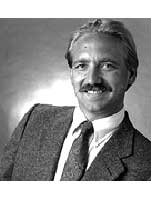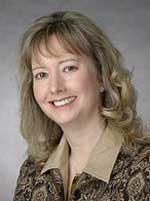
| Home I Registration I Travel I Program I Schedule I Keynotes I Sponsors I New Curriculum Initiative |
Keynote Speakers
 |
 |
 |
Wednesday, May 18, 2005 Chris has received numerous awards, including the State of Minnesota Higher Education Teaching Excellence Award, the Morse-Alumni Award for Outstanding Contributions to Undergraduate Education, and the Governor's Star Service Award for his service-learning work at Minnesota. An avid writer, Chris' last book project, The WAC Casebook: Scenes for Faculty Reflection and Program Development (Oxford University Press, 2002) is an edited collection of scenarios for faculty development in writing across the curriculum. (http://www.home.earthlink.net/~theansons/Portcover.html)
|
Wednesday, May 18, 2005 II. Writing as Learning and Defining the Discipline: California State |
III. Capturing Innovative Teaching through the Scholarship Teresa Dawson is the Director of Teaching and Learning Services and Senior Lecturer in Human Geography at the University of Toronto at Scarborough. Her areas of interest include effective teaching assessment, faculty and graduate student professional development, supporting and enhancing diversity in the academy, and achieving teaching and learning-related institutional change. In 2004 she helped draft UTSC's new official teaching guidelines, which now document concrete ways to value and assess various aspects of teaching including the scholarship of teaching and learning (SoTL) for purposes of tenure and promotion. She has been instrumental in founding an Institute for the Scholarship of Teaching and Learning in the Disciplines at UTSC. Nationally, she is a member of the steering committee for the Society for Teaching and Learning in Higher Education (STLHE). Internationally, she participates in the scholarship of teaching and learning both within her own discipline (for example as a consultant to the American Association of Geographers) and in collaboration with other SoTL colleagues in the US, UK and Asia. |